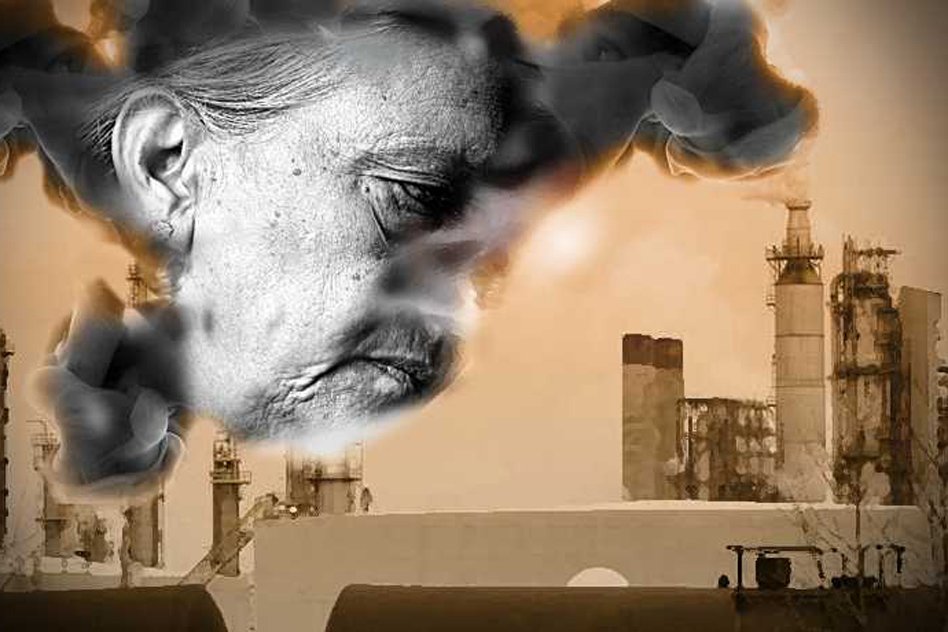Eight years after Bhopal witnessed the world’s worst industrial disaster on the night of 2 December 1984, my grandmother died. It was 1992, and the tragedy no longer mattered to anyone who wasn’t there that night.
In the sleepy town that Bhopal was in 1984, my grandparents lived at a popular address near the Lower Lake. On December 2, it was a night like any other. Till about 3 am, when they woke up to a commotion on the streets. And from that minute on, nothing was the same in their lives. Nearly two-thirds of Bhopal‘s almost 9 lakh population was exposed to the highly toxic Methyl Isocyanate that leaked at the Union Carbide India Limited that night.
But they didn’t know this then. Their initial thought was that mushaira-loving Bhopalis were returning after attending a late-night session somewhere. It was dismissed in a few minutes when they realised the sounds were people wailing.
Over the next few minutes and hours, the sounds changed. Became people running. Some falling to their death. Some being carried. It wasn’t clear what was wrong, but something was. They could hear it in the wails and they could, soon, feel it in their watering eyes, their own rasping breath.
They had to make a decision. To flee. Or not to flee. My grandfather decided against it. Their old legs would not have carried them far. They placed wet towels on their eyes and stayed indoors, hoping for the best.
Death comes close
The distance between the Union Carbide factory and their home was approximately 8 km. For Bhopal in 1984, not too geographically vast a city, that was a great distance. But not for the wind carrying the poisonous gas. Forty tonnes of Methyl Isocyanate stored in a semi-underground tank killed, even by official figures, 5,432 people to date.
The unofficial figure? 35,000.
My grandmother, over the next few years, was to become one of these statistics.
A woman of steel and style
My grandmother was a stubborn woman. She threatened to drop out of school on the lone occasion she was asked to help with housework. She refused to wear a chador or burqa, which was mandatory for girls growing up in the 1930s-40s. Instead, she wore saris. With a flower in her hair.
She proceeded to fall in love with a widower who had moved into her neighborhood – and managed to conquer all opposition from family by threatening to elope. Post-marriage she shocked the street-corner vendor by buying cigarettes for my grandfather. And when the children came along she made it clear that the onus of raising them was not hers alone.
These were the stories we grew up on. Then there were the stories that she told us. Or read out. Of a rich man wanting to marry an intelligent woman. And how an intelligent woman won his heart despite her poverty and her average looks.
She fought passionately with my grandfather over who would read a book first, or why he hadn’t returned the books on time to their reading room. Since we didn’t live in Bhopal, we would meet her only during the summer or winter vacation.
She made sure we had a good time. Took us to the movies. Often first-day, first-shows. Sometimes back-to-back shows. And when we were greeted by a ‘House Full’ board, she encouraged us to speak to the manager in ‘English’ and convince him to put extra seats in the box. Unlike other grandmothers she never dissuaded us from wearing pants or skirts. Or scolded us for not reading namaz.
She played carrom and badminton and cricket with us. Let us style her hair.
And then, after that December, she didn’t
When we met her two weeks after the tragedy, she was ill. She would cover her mouth and cough incessantly. We learned that her lungs had been affected. She was being treated by the best doctor. But, he too, was not sure about the course of treatment.
There were no stories to be told. Except of the poisonous gas leak. That December, residents had fled Bhopal. The town was as dead as the Union Carbide plant. We had to wear glasses and put rose water in our eyes to avoid the burning sensation.
She told us how my grandfather and she had survived because they had decided to stay at home. She told us about people who had died. Of those who were struggling to live.
By our next vacation we had a VCR and the movies were watched at home. She was still our go-to – she would look up advertisements in an Urdu newspaper and tell us what cassettes to order.
Except now she would leave midway because her constant coughing frustrated her.
In the years that followed, her health continued on a relentless downward spiral. We would often hear that she was hospitalised. Her coughing became worse. She started throwing up blood. She couldn’t eat. Or sleep.
By 1990, she was skin and bones. The only thing we recognised was her spirit. She would try and play bat-ball. Inquire about our grades. She continued to keep patience with us – but had very little with all else. She picked fights with my grandfather. For tuning into the news. For not getting good books from the reading room. For not paying her attention.
Her last few months were spent entirely at the hospital. Talking about food she longed to eat. Complaining about people who did not come to visit her. And the ones who did. If people cried by her bedside, she would laugh and say, “I am not dying. I have to get well and watch films.”
On May 5, 1992, she sat up in bed to say something, but couldn’t finish her sentence. Minutes later she became a part of the gory statistics of the world’s worst industrial disaster. She was 66.
For some, it was a life well-lived. For us, who saw the life slowly, painfully snuffed out of the woman who had more life than anyone we knew, it was eight years of hell. Because the woman she had been died this night, that year, when she inhaled that lethal gas.
Read more at Catchnews.com










